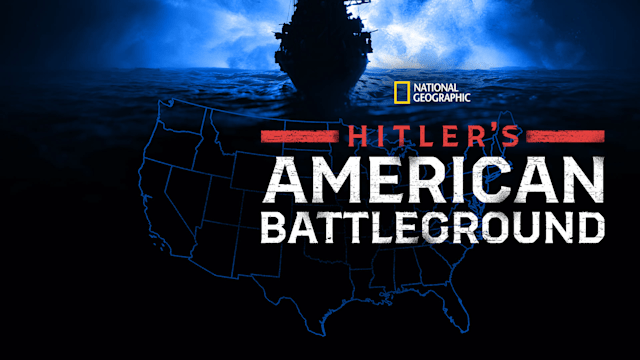Wildfire Gambling: Examining The Ethics And Implications Of Betting On Natural Disasters

Table of Contents
The Ethical Quandary: Profiting from Tragedy
The ethical dilemmas inherent in wildfire gambling are profound. Profiting from the suffering caused by a natural disaster represents a fundamental lack of empathy and decency. This practice raises several critical ethical questions:
-
Insensitivity to victims and their families: Wildfire gambling trivializes the immense loss and suffering experienced by those affected, showing a callous disregard for human life and the emotional toll of displacement and loss. It turns a tragedy into a commodity.
-
Exacerbating existing inequalities: Those most vulnerable to the effects of wildfires—often low-income communities and marginalized groups—are least likely to be able to afford to participate in such gambling, creating a further disparity and reinforcing existing inequalities. The opportunity for profit becomes yet another burden on those already disproportionately affected.
-
Moral hazard: The existence of markets for wildfire gambling raises concerns about moral hazard. Does the potential for financial gain incentivize recklessness or discourage proactive disaster preparedness and mitigation efforts? Could the availability of such bets even indirectly contribute to increased risk?
The lack of transparency in these markets further complicates the ethical landscape. The potential for manipulation and the lack of oversight create fertile ground for exploitation. Responsible gambling principles are completely absent in this context.
The Societal Implications: Beyond Individual Morality
The societal implications of wildfire gambling extend far beyond individual morality. The normalization of betting on suffering poses a significant threat to social cohesion and trust.
-
Increased social unrest and distrust: The perception that some profit from the misfortune of others can fuel social unrest and erode public trust in institutions, particularly if such gambling markets are perceived as unregulated or exploitative.
-
Impact on emergency response and resource allocation: Resources diverted towards policing and regulating such markets could detract from crucial disaster relief efforts, potentially hindering effective emergency response and recovery. The focus shifts from helping those in need to regulating a morally questionable market.
-
Normalization of gambling on suffering: Wildfire gambling, if left unchecked, could create a dangerous precedent, normalizing the practice of betting on other forms of human suffering or natural disasters. This creates a slippery slope with potentially devastating societal consequences.
Effective government regulation and public policy are essential to mitigate these risks. A proactive approach is vital to prevent the normalization of gambling on suffering and protect vulnerable populations.
The Psychological Impact: The Gambler's Mindset and Disaster
Wildfire gambling raises significant psychological concerns for both the gamblers and those impacted by wildfires.
-
Allure of high-stakes betting and potential for addiction: The potential for significant financial gains in high-stakes betting can be highly addictive, especially during times of widespread emotional distress. This type of gambling can easily spiral out of control.
-
Psychological detachment from the human cost: The act of betting on a natural disaster can foster a psychological detachment from the human cost. The suffering of victims is reduced to a mere variable influencing the outcome of a bet.
-
Normalization of tragedy through the lens of financial gain: The framing of a devastating natural disaster as an opportunity for financial gain can normalize tragedy, trivializing the immense suffering and long-term consequences experienced by individuals and communities.
The psychological harm extends to those affected by the wildfires. Witnessing the commodification of their suffering can cause further emotional distress and trauma.
The Legal Landscape: Current Regulations and Future Possibilities
The existing legal frameworks surrounding gambling and natural disasters vary widely across jurisdictions. Many countries have laws prohibiting or strictly regulating certain forms of gambling, yet there are gaps and ambiguities that could inadvertently allow wildfire gambling to flourish.
-
Current laws prohibiting or regulating specific forms of gambling: Existing gambling laws often focus on traditional forms of gambling and may not adequately address the unique challenges posed by betting on natural disasters.
-
International variations in legislation: International variations in gambling legislation create complexities in regulating this emerging trend. Cross-border activities may fall into regulatory grey areas.
-
Gaps in existing regulations: The novelty of wildfire gambling means existing regulations may not explicitly address it. This lack of clarity necessitates proactive legislative action.
The need for future legislation and regulation is clear. The development of a comprehensive legal framework specifically targeting gambling on natural disasters is crucial to protect vulnerable populations and prevent the exploitation of tragedy.
Conclusion: Extinguishing the Flames of Irresponsible Wildfire Gambling
Wildfire gambling presents a multifaceted challenge with significant ethical, societal, and psychological implications. The act of profiting from the suffering caused by natural disasters is morally reprehensible and poses a serious threat to social cohesion and trust. The potential for addiction, the normalization of tragedy, and the exacerbation of existing inequalities demand immediate and decisive action.
We must engage in a robust discussion about the ethics of wildfire gambling and advocate for responsible regulations. The development of clear legal frameworks and a strong public stance against this practice is crucial to preventing the exploitation of natural disasters and protecting vulnerable communities. Let's work together to extinguish the flames of irresponsible wildfire gambling and foster a future where human suffering is not treated as a commodity for profit. Let us promote responsible wildfire gambling and ethical considerations in disaster betting. We must actively work to prevent the normalization of wildfire gambling.

Featured Posts
-
 American Battleground A Fight For Power Against The Worlds Wealthiest
Apr 26, 2025
American Battleground A Fight For Power Against The Worlds Wealthiest
Apr 26, 2025 -
 Nintendos Action Ryujinx Emulator Development Ceases
Apr 26, 2025
Nintendos Action Ryujinx Emulator Development Ceases
Apr 26, 2025 -
 Should You Return To A Company That Laid You Off A Practical Guide
Apr 26, 2025
Should You Return To A Company That Laid You Off A Practical Guide
Apr 26, 2025 -
 Analyzing The Competitive Landscape Chinese Cars Vs Established Brands
Apr 26, 2025
Analyzing The Competitive Landscape Chinese Cars Vs Established Brands
Apr 26, 2025 -
 Betting On Natural Disasters The Troubling Trend Of Wildfire Wagers
Apr 26, 2025
Betting On Natural Disasters The Troubling Trend Of Wildfire Wagers
Apr 26, 2025
